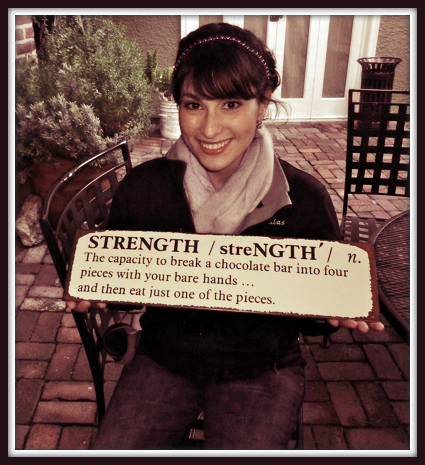On Shabbat and most Jewish holidays, we’re encouraged to eat, drink and celebrate. But weekly feasts can all-too-easily slip into overeating, causing guilt, physical discomfort, and post-meal narcolepsy.
Kidding aside, this scenario hits close to home. After working in the entertainment industry for many years, I internalized the infamously impossible beauty standards that business demands. The result: while trying to eat as little as possible, I drank the Kool-Aid in large gulps.
At a certain point, I decided it wasn’t worth it. I gave up dieting and embraced intuitive eating, slowly learning to listen to and trust my body’s hunger and satiety cues.

Here are a few strategies I’ve developed over the years that allow me to participate in and enjoy holidays, without killjoy food drama.
- Scope and pacing. How many times have I filled up on the first course, not realizing three more were coming? Ask your host what’s being served. Knowing the entire menu in advance will allow you to make informed choices. If you know her famous noodle kugel awaits, you might opt against a second helping of gefilte fish.
- Take one plate of whatever you want. I love trying new foods and usually want to taste everything. I recognize though that however extensive the food spread, my body only physically needs one plate of food. So, I fill my one plate with whatever I want and grant myself permission to enjoy. In this way, I get to sample and participate, while enforcing a gentle boundary that protects me from overdoing it.
- Only eat what you love. At my grandparents’ house growing up, my brother and I would put our plates on our heads after finishing all of our food. Ta da! Albeit cute, I’ve now excused myself from the “clean your plate” club. These days, I eat food that my body and I both love. I used to express appreciation to my hosts by eating more, even if I found the food mediocre. Now, rather than stuff myself to accomplish this, I use my words to say thank you.
- People are the point. Shabbat allows us to stop and connect with Hashem and each other. That’s the whole idea. But, measuring and monitoring, and focusing on food kept me in my head and removed from the moment. Let food play a supporting role in the Shabbat scene and instead, prioritize people.
- Ask for leftovers. Sometimes, you get a dish that’s particularly delish. When that happens, the inclination is to take more—seconds (and thirds!) The logic goes, “Who knows when I’ll have this awesome concoction again? I better eat it all while I can.” Here’s the thing, if you’re at a Jewish function especially, your host likely made too much, and she’s stressing about what to do with the leftovers. Ease her mind and yours by asking to take some home with you for later. Not only will you compliment your host’s cooking, you’ll spare yourself the impulse to overeat, knowing you can have more once you’re hungry again.
These tenets serve me in many food-oriented scenarios. Not only do they reduce inner dissonance and stress, they provide flexible guidelines that support healthy relationships with others and, most importantly, yourself.
Share This PostFollow Me
